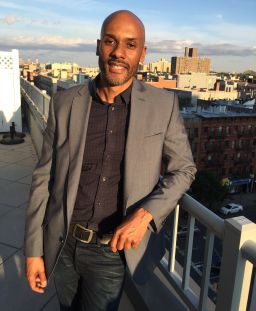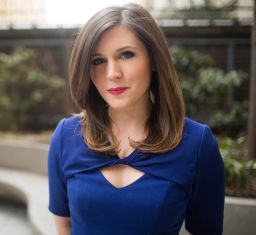CNN contributors weigh in with short takes on the fourth night of the Democratic National Convention’s biggest moments and speeches. The views expressed in these commentaries are those of the authors.
John Avlon: Biden gave the speech of his life – at exactly the right time
Barack and Michelle Obama set a high bar with their 2020 convention speeches. Contrary to expectations, Joe Biden exceeded it.

The degree of difficulty was considerable. No presidential nominee in our history has given a convention address to a largely empty room. And this was a man who was finally clinching the nomination 32 years after he first ran for president.
But Joe Biden gave a speech for the ages: clear, focused and fiery. Like most nominees, he weaved the story of his life into the story of the nation. It was a story of setbacks and personal pain – projected forward to give others comfort from their troubles. Biden also may have benefitted from repeated Republican attacks on his mental acuity, which lowered expectations for Biden’s performance. What viewers saw instead was a candidate firmly in control and ready to lead the country out of its morass - not because he thinks he alone can fix it, but because he knows how government works and he believes in the essential goodness of the American people.
There were clear contrasts and slashing attacks against President Donald Trump (contrary to early predictions that he wouldn’t)– focused on Trump’s failure to combat the coronavirus and his fundamental lack of empathy.
Empathy and decency may be the word most used in this convention. Because those are the qualities that define Biden – he is almost compulsively compassionate, always calling people going through hard times and indiscriminately handing out his cell-phone number to people in need. For all his faults, he is that rarest of things: a genuinely caring politician.
The GOP attacks on Biden to date have fallen flat, in large part because we know Joe. He’s been in the Senate almost as long as I’ve been alive. Biden is uniquely beloved among his congressional colleagues on both sides of the aisle. He is a reconciler – trying to bridge gaps and reason together, even as the Democrats platform represents a shift to the left. Despite GOP attacks, he is no radical – he seems to view his potential presidency as a means to re-unite the nation: “while I will be a Democratic candidate, I will be an American president. I will work as hard for those who didn’t support me as I will for those who did.”
These words shouldn’t feel as revelatory as they did. But that’s the key contrast between the two party’s nominees: “We will choose hope over fear, facts over fiction,’ as Biden said. “fairness over privilege.” This isn’t an election for pettiness or cynicism. As we combat challenges on every front, Biden presented this election as a contest between darkness and light.
John Avlon is a senior political analyst at CNN.
Oren Cass: A major question still remains for Biden’s campaign

Barack Obama’s legacy looms awkwardly over Joe Biden. Of course, he cannot disavow, or even really criticize, the administration he helped to lead for eight years. But, by its end, the nation was in such a state that it elected Donald Trump as President – a catastrophe, in Biden’s view. Many on the left as well as on the right now believe that the economic recovery from the Great Recession was botched.
Many on the left as well as on the right disdain the Obamacare-governed healthcare system and demand an overhaul.
The Black Lives Matter movement, we might recall, was born in the Obama years— the number of people shot dead by police each year hasn’t changed significantly since.
Biden’s acceptance speech struggled with the tension. On one hand, he made a point of pausing early to thank Obama. “You were a great president,” he said. But this came just after speaking of “all the young people who have known only an America of rising inequity and shrinking opportunity,” the Obama years presumably included. And it came just after lamenting that “more than 10 million people are going to lose their health insurance this year,” the sort of thing a successful health care overhaul might ideally prevent.
The question for the Biden campaign and a Biden administration is: what will be different? Doing the same thing and expecting a better result is, as the saying goes, the definition of insanity. Yet Biden’s agenda was, almost verbatim, a reiteration of Obama’s: “building on the Affordable Care Act” to deliver those elusive “lower premiums, deductibles, and drug prices”; an education system in which college attendance seems the only concern; vague reference to doubling down on a system of organized labor that has declined toward irrelevance; “equal pay for women”; millions of green jobs; “ending loopholes” in the tax code and making the wealthy pay “their fair share.”
None of this tackles America’s fundamental challenges or changes course from the policy mistakes of the past generation. Biden concluded on the theme that “hope and history rhyme.” The “hope” we remember; we should worry the “history” will repeat.
Oren Cass is the executive director of American Compass and author of “The Once and Future Worker: A Vision for the Renewal of Work in America.” Follow him on Twitter: @oren_cass.
Frida Ghitis: Never before have the stakes been higher

This was a convention like no other; not because it was virtual, but because of something much more important: Democrats were not just making the traditional case that their policies would be superior to that of Republicans.
They made a graver argument; that the survival of American democracy is at stake in November. Former Vice President Joe Biden made it stark when he vowed to help the country “overcome this season of darkness.”
Historian Jon Meacham laid it out. “We must decide whether we will continue to be prisoners of the darkest of American forces or will we free ourselves to write a brighter, better, nobler story.”
It was not hyperbole.
Conventions are normally festive events interspersed with serious business. Not this time.
With Americans watching from their confinement, with more than 4,000 dying of Covid-19 in the US during the four days of the DNC, a cloud of anxiety hung over the virtual gathering. There was laughter, Julia Louis-Dreyfus, music, joy, and a desperately-needed injection of hope.
But underpinning it all was the terrifying prospect that the devastation caused by the current president could lead the country to even darker places if Democrats cannot win in November.
On Thursday, Democrats tried to make the case, as Amanda Litman said, to vote, “not just against Trump but genuinely for Joe Biden.”
But let’s face it. The reality is that the greater motivation is removing the current president.
One after another, speakers expounded on Biden’s decency, compassion, humanity. But that’s secondary for most people who don’t support Trump.
The crucial mission driving those who will vote for Biden is answering the call that was made by so many other speakers, including many Republicans, that Trump is destroying America’s reputation around the world, turning its citizens against each other, tearing the country apart, and failing to stop a pandemic.
The convention was more about Trump than it was about Biden. Democrats and Republicans who have decided to support Biden made the case with searing effectiveness, that Trump has failed at his job, and what matters now is saving the country by ending his presidency.
The argument was made with the greatest urgency by former President Barack Obama on Wednesday, when he skewered the current President by name, issuing a clarion call to Americans, “Do not let them take away your power. Do not let them take away our democracy.” Never before have the stakes been higher.
Frida Ghitis, a former CNN producer and correspondent, is a world affairs columnist. She is a frequent opinion contributor to CNN, a contributing columnist to The Washington Post and a columnist for World Politics Review. Follow her on Twitter @fridaghitis.
Keith Boykin: Biden met the moment

Thursday night’s Democratic National Convention accomplished two critically important goals. First, it finally gave voters a reason to vote for Joe Biden and not just against President Donald Trump. And, second, it vaccinated Biden against the ugly virus of Trumpism that will surely infect America in the coming days and weeks.
By now, everyone knows Trump, and almost everyone has a strong opinion about him – one way or another. The November election was always going to be a referendum on Trump, and that’s exactly why the President’s re-election campaign has tried so desperately to create a ridiculous caricature of Biden as a dangerous leftist or a mentally unfit septuagenarian.
What the Democrats did this week, and especially on Thursday, was to counter the Trump caricature of Biden with the reality of the man. It was an effective rebuttal to the inevitable GOP attacks to come at next week’s convention.
Biden showed himself to be a good guy from humble beginnings, who suffered through tragedies in his life and genuinely cares about people, and that image posed a dramatic contrast with the divisive, self-centered politics of Trump.
What Democrats also did this week was give undecided voters a choice. Either elect the Joe Biden from Scranton, Pennsylvania, who rode the Amtrak train back and forth from Delaware every day when he served in the Senate, or keep the selfish wealthy leader who takes golf trips while more than 170,000 Americans are dying of a virus he failed to control.
As a progressive political activist, I don’t think I was the intended audience for Thursday night’s convention. I have to admit I was disappointed by the absence of Julian Castro, one of the most prominent Latino political figures in the party, and the presence of Michael Bloomberg.
Nevertheless, I still think the entire convention —from Michelle Obama on Monday to Brayden Harrington, the 13-year-old who struggles with a stutter, on Thursday — effectively reached the broader audience that Biden and Harris will also need to win in November.
It was not perfect, but it got the job done.
Keith Boykin is a former White House aide to President Bill Clinton and a CNN political commentator.
Sarah Isgur: The Biden campaign is fighting along the wrong axis

In another unusual turn this campaign season, the party conventions look like they will be strategically asymmetrical.
Campaigns think of voters along two axes – who they are likely to vote for and how likely they are to vote.
If this election is going to be a referendum on President Donald Trump, what the Democratic National Convention showed us was that Democrats believe they can pick up voters along that first axis when they focus on both Joe Biden and Donald Trump’s characters and personalities – and less on their policies or job performances. Democrats are chasing after “cares about people like me” voters.
The last night of the Democratic National Convention The convention’s final night delivered the perfect example of this. It was all about making viewers feel like they were a part of Biden’s world.
There was far more focus on stories– like the one from a rabbi who described how Biden came to the funeral of a female congregant who had donated $18 to his campaign, and the one from the 13-year-old boy who got advice from the Democratic nominee about how to overcome his stutter–than about Biden’s plan to overhaul health care or create jobs. And that was no accident.
While we don’t know exactly what next week will look like, everything we have been told so far is that the Republican convention will be about that other axis — convincing the hardcore Trump supporters to turn out to vote.
It will be about painting a picture of Biden’s America as one run by the extreme left wing of the Democratic Party that represents, as the President said recently at Mt. Rushmore, a “growing danger that threatens … to wipe out our history, defame our heroes, erase our values, and indoctrinate our children.”
From a purely strategic lens, the Democrat’s strategy may not match up with reality. According to a CBS/YouGov poll, 96% of voters say their minds are already made up, so how many persuadable voters are still out there?
But the polls are tightening in battleground states, and early voting starts in just a few weeks in some states, so turning out the vote will be critical.
The next major moment for Biden to make his case will be the first debate at the end of September. Will he stick with this positive strategy to persuade voters to like “Joe,” or will we see a shift toward an anti-Trump approach designed to turn out Democratic voters?
Sarah Isgur is a CNN political analyst. She is a staff writer at The Dispatch and an adjunct professor at George Washington University’s School of Media and Public Affairs. She previously worked on three Republican presidential campaigns and graduated from Harvard Law School.
Paul Begala: A truly great speech from a deeply good man

Thursday night, the American people saw a truly great speech from a deeply good man. Former Vice President Joe Biden was at turns an avenging angel, smiting Donald Trump for failing the American people.
His eyes flashed with anger as he spat out the indictment: 172,000 Americans dead from Covid-19, 50 million Americans file for unemployment, and 10 million Americans lose their health insurance.
At other times he was a healer, those Biden eyes, which have seen so much tragedy and shed so many tears, now filled with empathy, as he called his fellow Americans to choose light after “This season of darkness.”
I have known Biden for 34 years. I’ve seen him give a lot of speeches. Never have the stakes been higher. And never has he delivered more powerfully.
Most important, it was a window into the America we can be: A place where our president pointedly pledges to serve all Americans, including and especially those who did not vote for him. “But while I will be the Democratic candidate,” he said, “I will be an American president.”
He listed his plans for the future more than he bragged on the accomplishments of the past: plans for jobs, for health care, for saving the planet from carbon pollution.
But this was no laundry list of liberal dreams. It was an X-ray of Biden’s soul. The nation saw a proud product of the American middle class.
And by middle class I mean more than just someone who grew up neither rich nor poor – though he is that. I mean a set of values: hard work, family, faith, country, service. And above all, finding purpose in one’s pain. He closed with a passage from Seamus Heaney’s “The Cure at Troy”:
History says, Don’t hope
On this side of the grave…
But then, once in a lifetime
The longed-for tidal wave
Of justice can rise up,
And hope and history rhyme.
The next stanza, which Biden did not quote, gives us perhaps an insight into what a Biden presidency might look like, how it might be different from the current one:
So, hope for a great sea-change
On the far side of revenge.
Believe that a further shore
Is reachable from here.
Believe in miracles
And cures and healing wells.
After four years of “American carnage,” Biden is betting that his fellow Americans are hoping for a great sea change; that they want to move to the far side of revenge. It made this old political warhorse believe in miracles, and long for cures and healing wells.
Paul Begala, a Democratic strategist and CNN political commentator, was a political consultant for Bill Clinton’s presidential campaign in 1992 and served as a counselor to Clinton in the White House. He is the author of the new book, “You’re Fired: The Perfect Guide to Beating Donald Trump.”
Van Jones: The night we started fighting for Biden

That sound you hear is the sound of Democrats across the country exhaling. We would have accepted a Biden verbal gaffe or two, and then moved on to the rest of the campaign. Instead, he came out and delivered a composed, compelling – and presidential – speech.
Joe Biden had half of us the moment he opened by quoting civil rights hero Ella Baker, saying “Give people light and they will find the way.” The motif of light and darkness gave his speech a cohesive theme. He was alternately tough and empathetic, but constantly direct and straightforward.
It is tough to effectively share your biography in a speech like this. It is tough to outline policy plans. It is tough to attack and contrast. Yet Biden did all three well, and he was authentic while doing it. He included all the policy you could want, but it was masterfully woven into his biography and talk about the character of America.
He talked about Trump’s failures on Covid-19, outlined his own plan, and then touched the heart of everyone who has lost a loved one by sharing his own story. He told us what his father taught him about the dignity of work, and went straight into his jobs plan.
At a time when we are all thinking about family more than ever, Joe connected his family’s story to our national story.
You cannot give a speech like this without it sounding corny– unless you believe it at a genetic level. It resets the game, and it means two important things:
First, the caricature of the bumbling old fool that Republicans were pushing went out the window tonight. They will have to go back to the drawing board for their convention next week.
Second, tonight Democrats went from “anyone but Trump” to “This is the guy for us.” We are not settling for Biden anymore. We are fighting for Biden.
Van Jones, CNN host, is the CEO of the REFORM Alliance, a criminal justice organization. He is also the author of “Beyond the Messy Truth: How We Came Apart, How We Come Together.” In 2009, Jones worked as the Green Jobs Adviser in the Obama White House.
Alice Stewart: Light on policy and heavy on passion

As speakers at the Democratic National Convention made the case for Joe Biden, we heard about character and compassion, hope and light, community over chaos.
It’s clear that Democrats are appealing to emotions over ideology in the general election. The question is: Will the passion play echo chamber of the convention make an impact with independent voters?
Biden entered this race vowing to restore the soul of America. While accepting the Democratic nomination, he made a compelling argument “that the end of the chapter of American darkness begins tonight.”
His speech was strong and convincing, as he served up red meat for his base, while portraying himself as an empathetic unifier.
That’s important, because politics is a game of addition. At this stage of play, conventional wisdom is that those who support Biden will vote for him, and those who support President Donald Trump will vote for him.
The goal of this convention was to win over independents, swing voters and disaffected Republicans. Namely, adding to the party – not subtracting.
To make that case even stronger, we heard from Republicans who now support Biden and from Never Trumpers who have had enough of our current president.
Democratic National Committee Chairman Tom Perez opened the final night of the convention with a compelling plea to broaden the tent, saying “What has brought us together isn’t partisanship, it’s purpose.”
The problem for Democrats may be that this week has been heavy on passion and light on policy. They are making a strong play for winning over the hearts of voters– and largely relying on emotion to carry them over the finish line.
Needless to say, there could not be a starker contrast to Biden’s impassioned demeanor than Trump’s aggressive nature. Next week, the Grand Old Party will have their chance to make their case. The challenge is to win over voters on both passion and policy.
Alice Stewart is a CNN political commentator, former resident fellow at the Kennedy Institute of Politics at Harvard University and former communications director for Ted Cruz for President.
David Gergen: Biden is walking in Franklin Roosevelt’s footsteps

Coming to the closing night of the Democratic National Convention, I confess that I wasn’t sure whether Joe Biden still had the right stuff to unite the country.
His team certainly proved their worth with a surprisingly smooth and successful convention. An array of smart, caring women spoke powerfully all four nights. Each night also brought a new outpouring of diverse voices — young and old, Black, White and brown.
But what about Biden himself? Did he still have the energy and acuity needed in a president? Could he connect emotionally with rising generations? Could he really lead us out of our current darkness into light, as he pledged to do?
In my view, Biden emphatically proved on Thursday that he is up to the job — and then some. He spoke movingly about pain and suffering but showed flashes of inner steel when describing his opponent.
Yes, he was reading from a teleprompter, but he delivered his acceptance without a misstep. He appealed to young idealists with his visions of tomorrow but showed no signs of being held hostage by radical socialists, as Trump so often claims.
This was a convention that turned more on values and emotions than on policy prescriptions. Empathy, compassion, honesty, authenticity, even love – those qualities mattered far more than five-point plans. In his acceptance address, Biden showed that he is their walking embodiment.
There were moments big and small that also reflected well on his leadership. The big ones were mostly around his selection of Kamala Harris as his running mate.
By the final night of the convention, she seemed a brilliant choice. A small but sweet moment was a film clip of Biden helping a young boy learn to overcome his stutter. Can you imagine Trump having the guts to shine a light on a potential vulnerability?
Bottom line: Millions of Americans today are looking for leaders who understand their struggles and will lift spirits, as Franklin Roosevelt did in the wake of the Great Depression, when he restored people’s hope in the future. Biden doesn’t pretend to be Roosevelt, but increasingly he is walking in his footsteps.
David Gergen has been a White House adviser to four presidents and is a senior political analyst at CNN. A graduate of Harvard Law School, he is a professor of public service at the Harvard Kennedy School, where he founded the Center for Public Leadership.
Jill Filipovic: The final night was very, very Christian

The final night of the Democratic National Convention was funny, touching, inspiring – and very, very Christian.
Yes, there was one Jewish leader who told a brief story about Joe Biden visiting his congregation and another who offered a closing prayer, alongside a Muslim faith leader and a priest.
But, overwhelmingly, the discussion was about Christianity and a Christian understanding of religious faith, from the Catholic nun who led viewers in prayer to commandment-referencing historian Jon Meacham. Biden’s own faith was at the center of the night.
One wonders: why? The Democratic Party is a party of many faiths, a party of people with no religious faith at all, and a party of people who think their faith is none of your business and should surely not influence political decisions.
According to Pew Research, the most reliable Democratic voters are Jews, the religiously unaffiliated and those who fall into the category of “other” – Muslims, Hindus, Sikhs and other religious minorities.
Religious faith is an important part of many peoples’ lives, including Biden’s; it’s a motivating force for many progressive people, including the late Georgia Rep. John Lewis.
There’s no need to marginalize faith. But pushing Christianity above all, and implying that religious belief is the primary source of morality, is an insult to a nation built on the twin principles of free religious expression and the separation of church and state.
Leading a prayer at a political convention is fundamentally alienating to all those who do not share the faith of the clergy member – or adhere to any religious faith at all. It is particularly troubling to frame prayer in politics as standing up for the vulnerable, given that many of the most vulnerable in America are marginalized because they are religious minorities.
The trouble with sermonizing at a political event remains even if you add a rabbi and an imam into the largely Christian mix.
Biden’s story includes his religious faith, and he should be free to share that part of himself. But his personal story shouldn’t be the party’s story; it can be descriptive of the man, but it shouldn’t be prescriptive for the rest of us.
Jill Filipovic is a journalist based in New York and author of the book “OK Boomer, Let’s Talk: How My Generation Got Left Behind.” Follow her on Twitter @JillFilipovic.
Patti Solis Doyle: Joe Biden is the right president for this time

Four nights of programming, numerous speakers and dozens of videos told the same story: Joe Biden is a man of genuine kindness, common decency and courage in the face of terrible loss. We heard from the young and amazing 13-year-old Brayden Harrington with a stutter; all those Amtrak workers; Cindy McCain; and Jacquelyn Brittany, the security guard wise enough to see Biden’s humanity in the space of an elevator ride.
With Donald Trump in the White House, stories like that matter more than ever.
We take comfort in Biden’s experience, but it’s his decency that closes the deal. His losses in life (his wife, his first daughter and his son Beau) teach us we can get through this pandemic. Truth is, we have all suffered loss too, and Biden has shown he can help us heal.
From Trump’s all-cap tweets to his dehumanizing attacks on immigrants, we were exhausted, angry and desperate for a break. And then came Covid-19. Americans are craving common decency so much that when we see it, it overwhelms us.
At the end of the convention, Biden summed it up for us. He put this need we’re feeling into a few simple words: This is a choice between the light and the darkness.
This convention was overwhelmingly successful because it focused on the character of the nominee. In doing so, it made him less vulnerable to Trump’s increasingly random attacks. Biden heads into the fall with the strong armor he has built over decades.
There is no question Biden can do the job that the presidency requires. His decades in the US Senate and his eight years as vice president have equipped him for this crisis. But it is Biden’s humanity that makes him the right president for this time.
Patti Solis Doyle, a CNN commentator, was an assistant to the President and senior adviser to then-first lady Hillary Clinton, was chief of staff on Clinton’s 2000 and 2006 Senate campaigns, and Clinton’s presidential campaign manager in 2007 and early 2008. She is president of Solis Strategies, a Washington-based consulting firm that specializes in serving nonprofits, nongovernmental organizations and corporations. Follow her @pattisolisdoyle.
Jen Psaki: Biden draws on overcoming personal challenge to point America to the light

There are few moments during a presidential campaign that capture the audience’s attention and interest more than the presidential nominee’s primetime speech.
Former Vice President Joe Biden used the opportunity to deliver a speech that had more in common with a State of the Union address than with most political speeches.
There is no way to sugar coat this moment. And Joe Biden didn’t. He was sober about the impact of the pandemic on lives, jobs and our children’s education – and about the impact of issues ranging from climate change to gun violence.
But he also pointed to what is possible by saying near the beginning of his speech, “Here and now, I give you my word: If you entrust me with the presidency, I will draw on the best of us, not the worst. I’ll be an ally of the light, not the dark.”
And he was, throughout his speech.
He connected his own suffering and his own tragedy to his commitment to living with purpose. He talked about the lessons he learned from his Dad – like the dignity of a good job – and how they informed his economic plan.
The former Vice President made clear that he has walked in your shoes – and he will take that with him into the Oval Office.
Amid the details of his agenda he wove in tender testimonials to his family, speaking emotionally about his wife, Dr. Jill Biden, his children, including his late son Beau, and his beloved grandchildren.
While there were contrasts to and some attacks on President Donald Trump in his speech, Biden ultimately called on Americans to “Make hope and history rhyme.”
He wisely used the moment to go bigger, to show us what a real president looks like. It has been so long that it was a welcome reminder.
Jen Psaki, a CNN political commentator, was the White House communications director and State Department spokeswoman during the Obama administration. She is the founder of Evergreen Consulting. Follow her at @jrpsaki.












